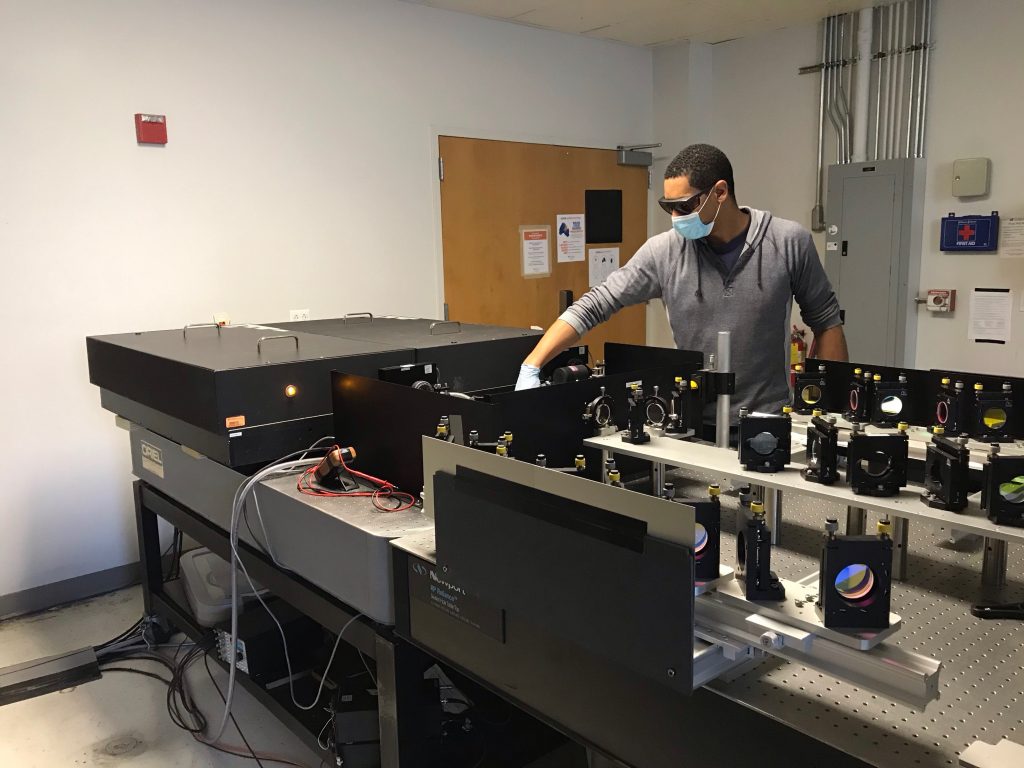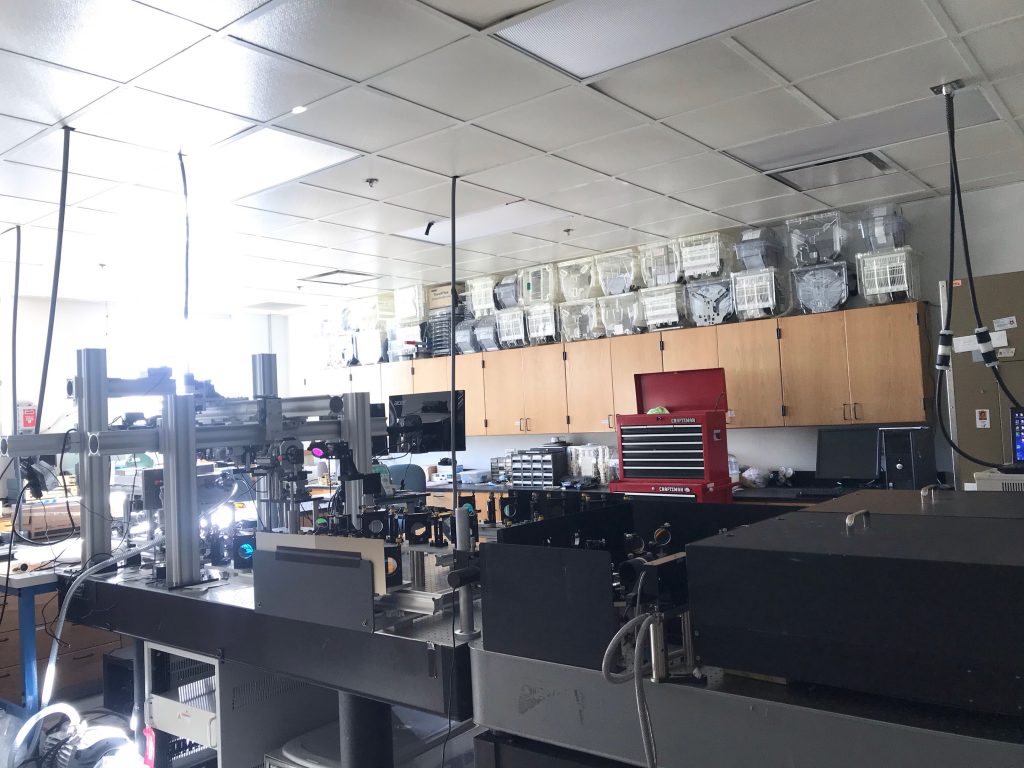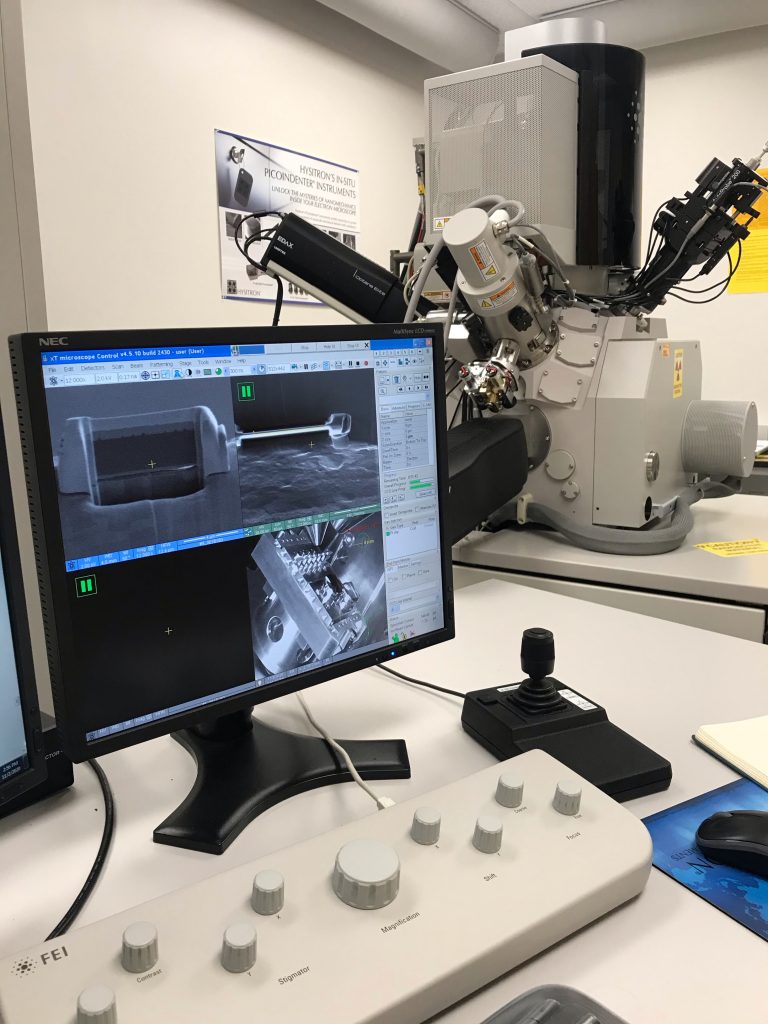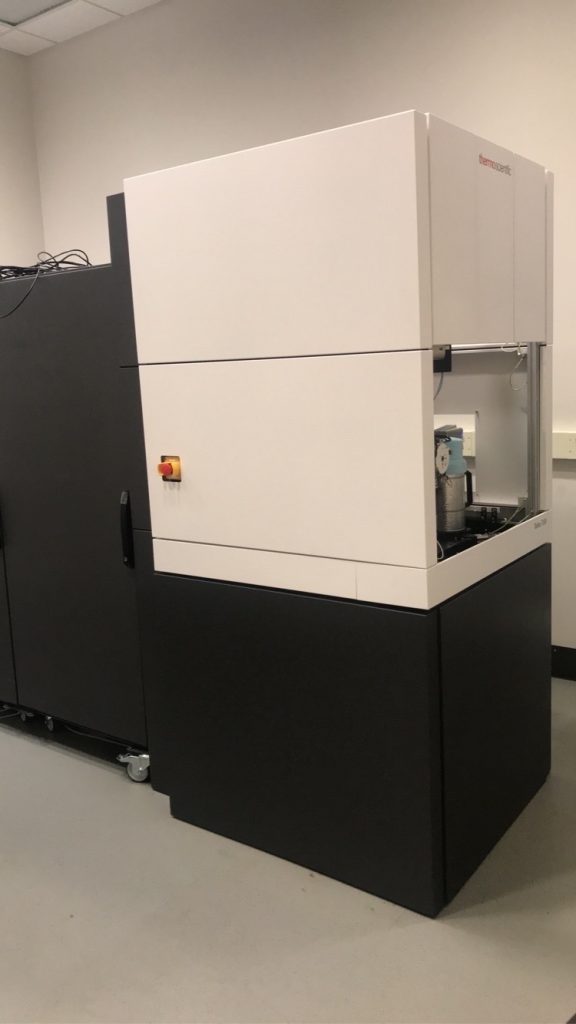Electronic Materials research encompasses a variety of materials, including semiconductors, magnetic materials and optical materials. They can be both inorganic and organic. The most common applications for electronic materials are for computer chips, optical devices such as LED’s and diode lasers, sensors and materials designed to take advantage of unique quantum properties. At UF, we’re examining novel methods of creating and doping semiconductors and growing interesting new materials with unique magnetic and electrical properties for future devices. We’re even investigating ways of making organic photovoltaic devices that offer the promise of inexpensive energy harvesting.
Kevin Jones, Ph.D.
Distinguished Professor and Frederick N. Rhines Professor of Materials Science and Engineering
Inside an Electronic Materials Lab
-

Graduate student Jesse Johnson aligning optical pieces for laser annealing -

Laser annealing is a special process that allows us to heat up samples to very high temperatures extremely quickly -

The tool used to prepare samples for use in the TEM -

An extremely powerful transmission electron microscope (TEM), to take pictures of samples as small as just a few atoms

